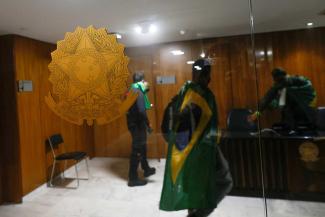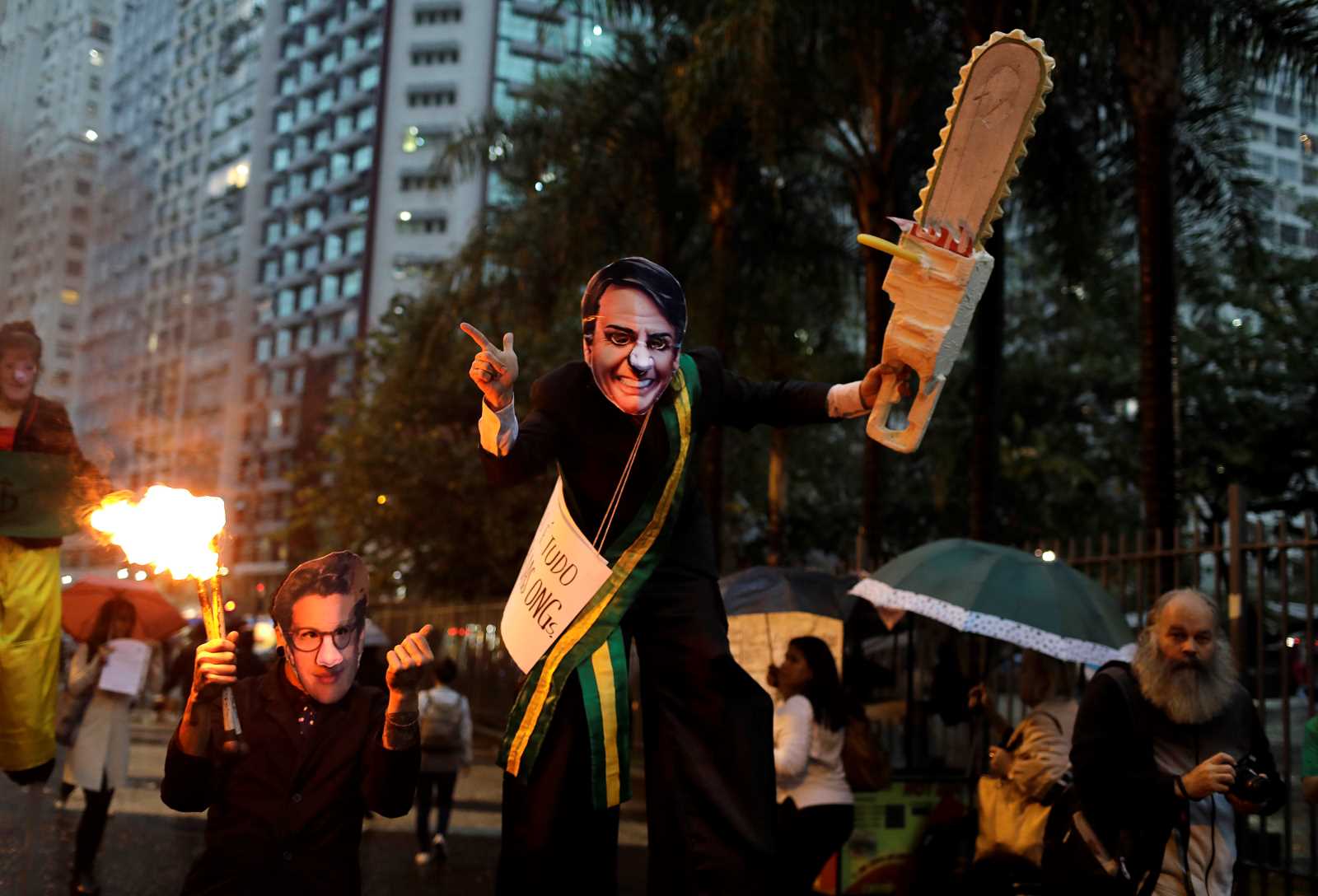Democracy under attack
8 January 2023 in Brasília looked like 6 January 2021 in Washington

Collective violence from extreme right-wing supporters of Brazil’s former President Jair Bolsonaro was feared and even expected after the October 30th 2022 runoff of Presidential elections. While there were indeed many demonstrations, road blocks and protest camps across the country, the inauguration of President Luiz Inácio Lula da Silva took place without disturbance on 1 January. The expectation was that the new government would thus no longer face anti-democratic activities.
It was wrong. On 8 January, an angry crowd of Bolsonaro supporters invaded the Presidential Palace, the Congress and the Supreme Court. Some 10,000 extremists, dressed in the colours of Brazil’s flag, vandalised the buildings of the executive, legislative and judicial branches of government. Glass windows and doors were broken. Furniture and art works – many of high historical, cultural and financial value – were destroyed.
Controlling the vandals
After hours of rioting, reinforced security forces managed to control the vandals. By Monday evening, 1500 persons had been arrested. Some were caught in the act, but the investigative police also used photos and video to identify perpetrators of what was widely called acts of terrorism. Some culprits had posted incriminating images online.
Nonetheless, authorities’ failure to prevent the attack is deeply worrisome. The intelligence agency had issued several warnings about the risk of radical action. Nonetheless, the military police of the Federal District of Brasília escorted the mob through the capital. Some pictures show them appreciating the extremists. Bolsonaro always did his best to woo the security forces. Ibaneis Rocha, the governor of Federal District of Brasília, is a Bolsonaro ally and now considered an accomplice of the attacks.
The invasion of Brasília was orchestrated. Radicals were brought in by bus from all over Brazil. Transportation and food were paid for by businesses, mostly from the agricultural sector, where some big investors benefited from Bolsonaro’s disregard for the environment. Coordination was done on social networks, especially Twitter and Telegram.
International networking of the extreme right
The incidents in Brasília obviously resembled the riot in the US Capitol on 6 January 2020. There is evidence of the extreme right’s transnational networking. Supporters of former US President Donald Trump strategised with people who belong to Bolsonaro’s inner circle. Bolsonaro himself took refuge in Florida in late December, where he was hospitalised at the time of the invasion. That looked like a carefully planned alibi.
Brazil’s institutions did react forcefully. Lula announced a federal intervention in Brasília’s security forces, and Congress approved it fast. He also dismissed dozens of military leaders. A Supreme Court justice suspended Rocha from the regional government for 90 days. He also blocked Telegram and ordered that the content of messages from before 8 January must be sent to the federal police. Anderson Torres, who was in charge of public safety in the Federal District and is Bolsonaro’s former attorney general, was arrested – and so was the chief of Brasília’s military police.
Open questions
Many analysts now see Brazil’s institutions, democracy and current government strengthened. The extremists who wanted to trigger a military coup failed. Key questions remain unanswered however.
- Why was the military not called in? Some argue that, had the new government done so, it would have risked facing the refusal of several generals to intervene against the mob. Brasília’s military police chief claims the army had not let him remove a protest camp near the barracks. Lula says he did not want to let the miliary decide over a power grab.
- What went wrong in the regional government? Perhaps Rocha knew what was going on, but he may have been misled by underlings.
- What businesses were involved in funding the protests?
- What role did foreign individuals and organisations play? Particularly interesting is how social media were used and manipulated internationally.
In this context, it is encouraging that many foreign leaders expressed solidarity with Lula fast.
André de Mello e Souza is an economist at Ipea (Instituto de Pesquisa Econômica Aplicada), a federal think tank in Brazil.
Twitter: @A_MelloeSouza










